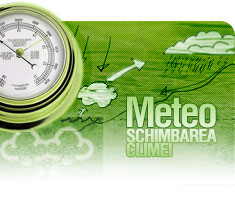https://unfccc.int/news/education-is-crucial-to-tackle-the-climate-crisis
Today, the International Day of Education, is an opportunity to reflect on the central and critical role of education in the international response to climate change.
Important work on climate education is taken forward under the United Nations Framework Convention on Climate Change and the Paris Climate Change Agreement under the banner of Action for Climate Empowerment (ACE).
ACE has six pillars - education, training, public participation, public awareness, public access to information and international cooperation - and it is the very first area of work upon which countries agreed when coming up with a package of decisions to implement the 2015 Paris Agreement.
"Climate change should be included in all school curricula and should play a central role in updated Nationally Determined Contributions," said UN Climate Change Executive Secretary Patricia Espinosa at the UN Climate Conference COP25 in Madrid last month in welcoming an announcement by Italy and Mexico committing to stepped-up climate and environmental education.
"I look forward towards more countries factoring in climate education into their national climate action plans," said Ms. Espinosa at that time, a message she also voiced on the occasion of the second International Day of Education, proclaimed by the United Nations General Assembly in 2018 to honour education and its centrality to human well-being and sustainable development.
With respect to climate change, the plan put forward by Italy and Mexico in Madrid last year is to have a critical mass of countries committed to the environmental and climate education agenda by the time the UN Climate Conference COP26 takes place in November of this year in Glasgow.
How ACE Encourages Training and Capacity Building at National Level
As part of their work under ACE, countries name ACE national focal points and create national strategies for ACE. Much of the work of UN Climate Change on ACE is to encourage and facilitate, for example through workshops and training, countries' fulfilment of these two fundamental steps.
In Austria in October last year, for example, a gathering of climate influencers, including representatives of national, regional and local governments, diplomats, youth, NGOs and CEOs from the public and private sector declared their commitment to broad-based, informed engagement to meet the goals of the Paris Agreement.
That event marked the opening for signing of the Burgenland declaration, in which signatories declare their "determination and commitment to make ACE fundamental in the planning and actions of our government, organization, agency, company or personal or public enterprise, and to support and encourage others to do the same, for the sake of protecting Earth's climate for present and future generations."
Less than two months later, at COP25 in Madrid, ACE found strong support from diverse constituencies, including the youth.
"The climate education commitments, for example from Italy and Mexico at COP25, highlight what is possible in the fight against climate change when bold action is taken," said Adriana Valenzuela, education and youth focal point at UN Climate Change. "Around the world, young people are using their voices to say that action is required now in the global fight against climate change."
In 2020, under the terms of the Paris Agreement, countries need to submit enhanced nationally determined contributions to meeting the Agreement's target of holding average global temperature rise to 1.5 degrees Celsius. This year offers the opportunity to embed ACE in national plans in support of the international response to climate change.
The year 2020 is also significant for ACE for another reason, as countries have set for themselves the goal of assessing their progress on ACE - the plans for which were laid out in the Doha Work Programme agreed in 2012 - and come up with a successor to that programme, with discussions taking place in May in Bonn, culminating at COP26 in Glasgow in November.



 Română
Română English
English


